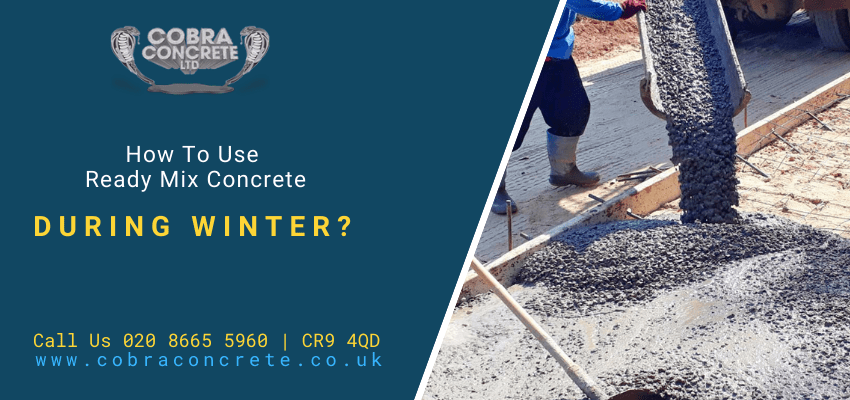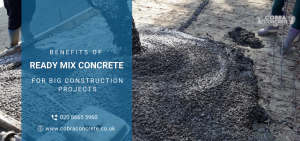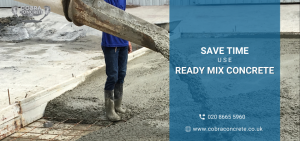Do you have a construction project coming up this winter season? But, with the cold weather outside making things more complicated, are you perplexed about what to do? Well, even though the cold season isn’t ideal for concrete, you can turn things in your favour. Are you wondering how? Well, all you need to do is approach the best suppliers of ready mix concrete in Croydon. Trust us; they can protect your concrete from the damage of cold weather.


Pouring concrete in winter season is inevitable for contractors who have to work in colder climates. The material loses its durability, weather resistance and comprehensive strength if it freezes during the pouring and setting process. And, only the concrete suppliers and contactors protect the material from the damage of cold weather. This means that if your project requires pouring concrete during the winter months, you need to approach the experts.
The Winter Mix
As the weather gets colder, concrete suppliers will heat the material during the mixing process. The extra heat accounts for the expected drop in temperature during an average one-hour delivery in the winter season. This heat will prevent concrete from cracking, freezing and losing its comprehensive strength in the cold climate. Leading suppliers of ready mix concrete in Croydon also provide customers with the warmest possible on-site concrete.
Even the concrete mix matters to the overall project. Depending on the outside temperature and your project requirements, the suppliers will adjust the mix. This will help in pouring the concrete well and setting quickly in the winter weather.
Addition Of The Accelerators
Adding accelerators to the mix speeds up the concrete setting time as well as allow it to cure faster. Also, this prevents the concrete from freezing and experiencing any frost damage. Moreover, accelerators help in speeding up the finishing phase. The less time it takes for project completion, the better the quality of the finished product.
Water-Reducing Additives
Water-reducing additives create a higher-density paste of cement. This results in more weather-resistant and stronger qualities in the concrete.
Avoiding Fly Ash
Do you plan to expose the cement to de-icing chemicals once it cures? If so, you will want to reduce or avoid the amount of fly ash that’s added to the mix. This is because; fly ash can lead to scaling or peeling of the surface when exposed to de-icing chemicals.
Pouring Concrete In Cold Weather
Even though winter isn’t the ideal time to pour concrete, it’s possible to pour the concrete well enough. By taking just a few steps, concreting can result in a long-lasting, strong product in the cold season. To protect your poured material from damages, you need to remember certain rules. These include-
· Never pour concrete on ice, snow or frozen ground
· All protrusions and corners must be triple wrapped
· In case the ground is frozen, thaw it for two days by using blankets and heat pipes
· Cover the material until it cures completely So what are you still thinking of? Approach a reliable concrete supplier and get started with your construction project!




